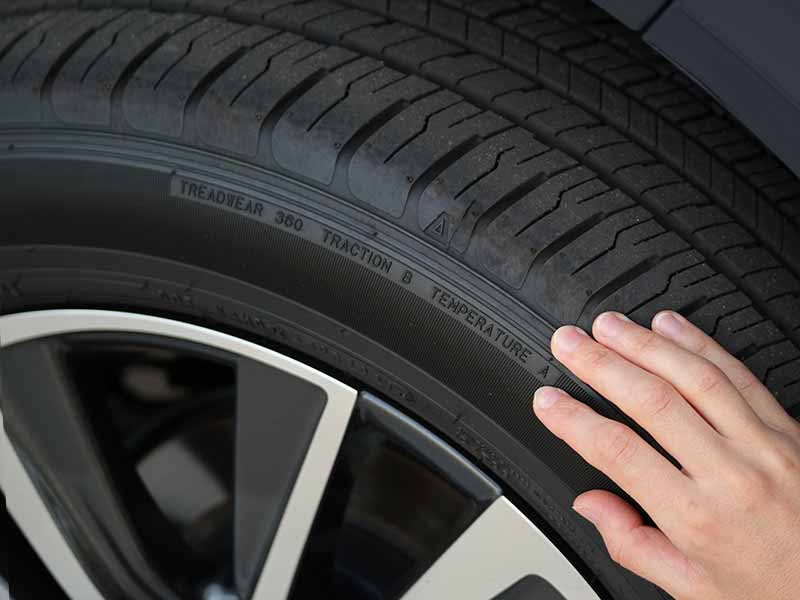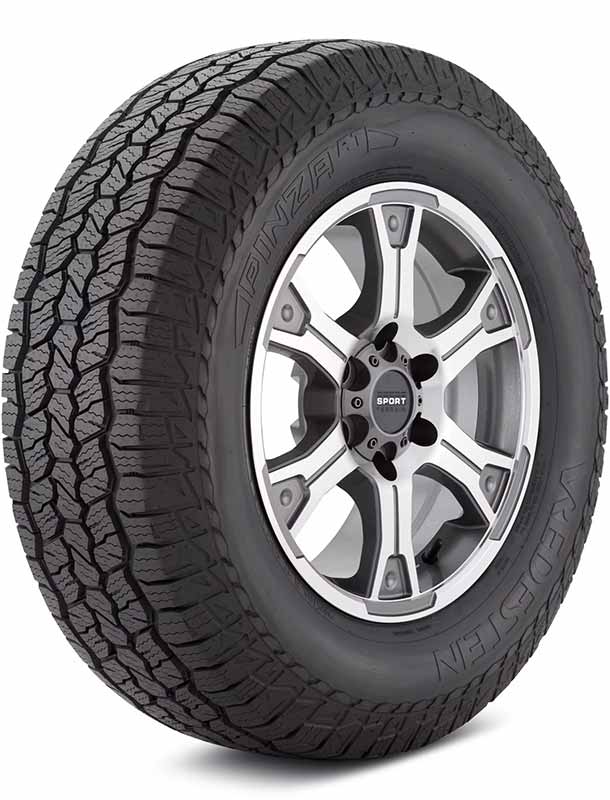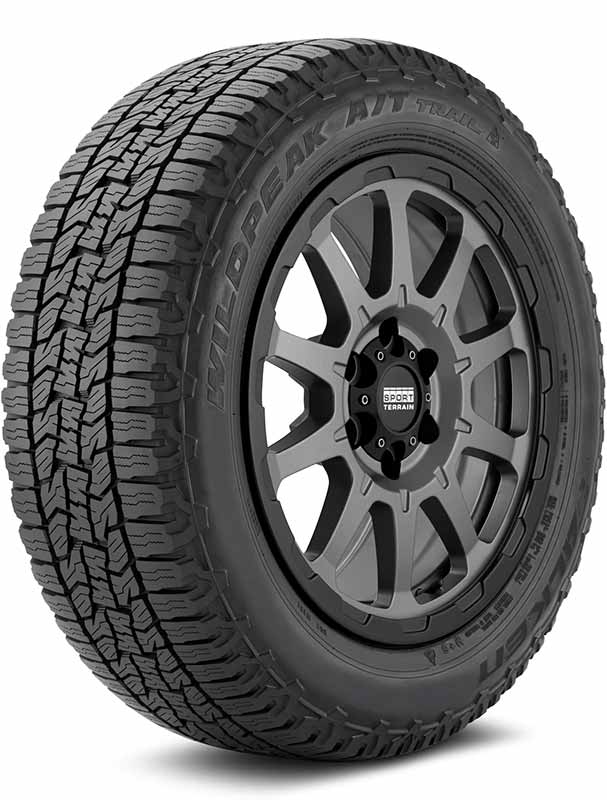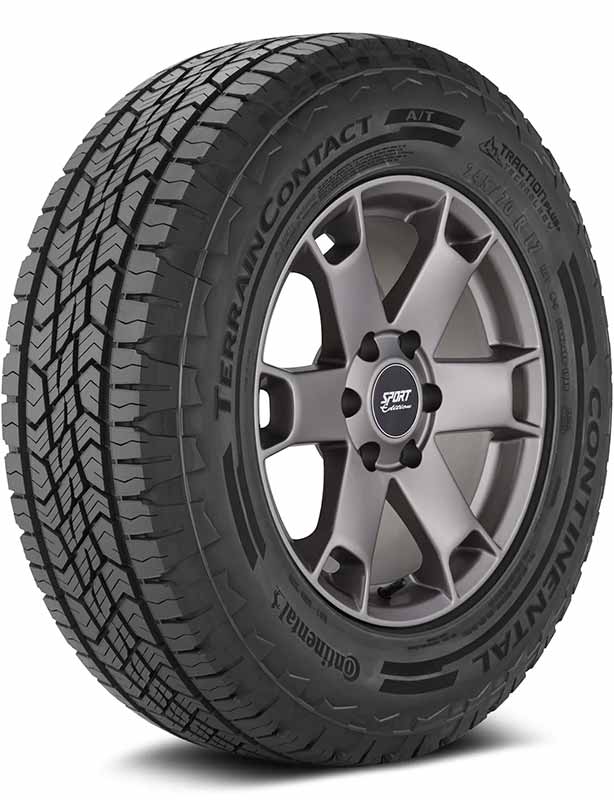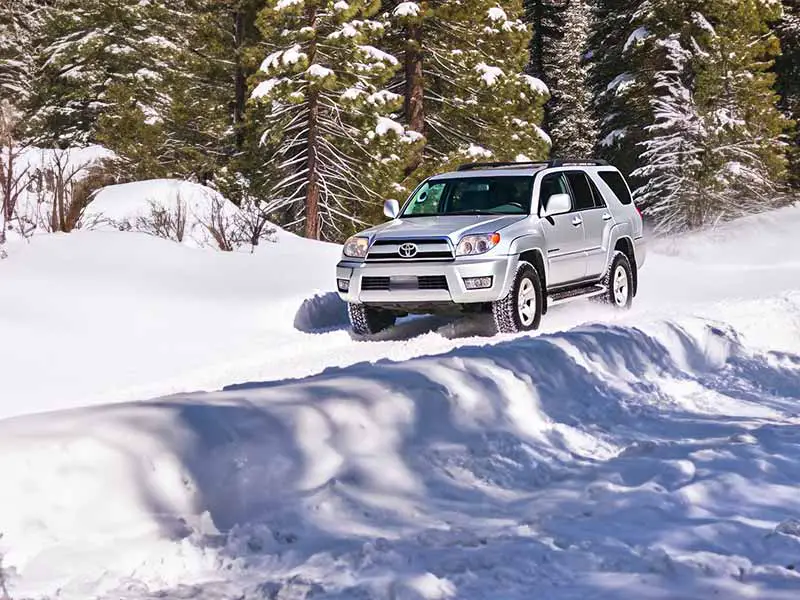Proper tire pressure is crucial when it comes to keeping your car running smoothly, and it can have a significant impact on everything from your fuel economy to your safety on the road.
Why Is Tire Pressure Important?
Tire pressure is important for maintaining optimal performance and safety on the road. Not only does it help improve fuel economy and ride comfort, but it also extends the life of your tires and reduces the risk of blowouts or other dangerous incidents.
Regularly checking your tire pressure and inflating your tires to the recommended level for your vehicle is an easy way to ensure that your car is performing at its best and that you’re getting the most out of your tires.
In this article, we’ll explore some of the many reasons why tire pressure is so important and why it’s worth taking the time to ensure that your tires are always in top condition.
Let’s take a closer look.
Benefits Of Proper Tire Pressure
It might not be the first thing that comes to mind when you check tire pressure, but proper tire pressure can actually make a big difference when it comes to your car’s fuel economy, safety, and overall performance.
Tread Life
Maintaining proper tire pressure can also help extend the life of your tires, which can save you money in the long run.
When your tires are underinflated, they can wear down more quickly and unevenly, which can lead to the need for replacements sooner than you might have expected.
Overinflated tires can cause the center of the tire to wear down more quickly, which can also lead to premature tire failure. By keeping your tires at the recommended pressure, you can help ensure that they wear down evenly, extending their lifespan and saving you money on replacements down the line.
Fuel Economy
Maintaining proper tire pressure can be a real game changer when it comes to improving your vehicle’s fuel economy. When your tires are properly inflated, they roll more smoothly and create less friction against the road. This means your car doesn’t have to work as hard to move forward, so you’ll use less gas. In fact, the U.S. Department of Energy estimates that you can improve your gas mileage by up to 3% just by keeping your tires properly inflated.
That might not sound like a lot, but those savings can add up over time. Plus, not only will you save money at the pump, but you’ll also reduce your carbon footprint by using less fuel.
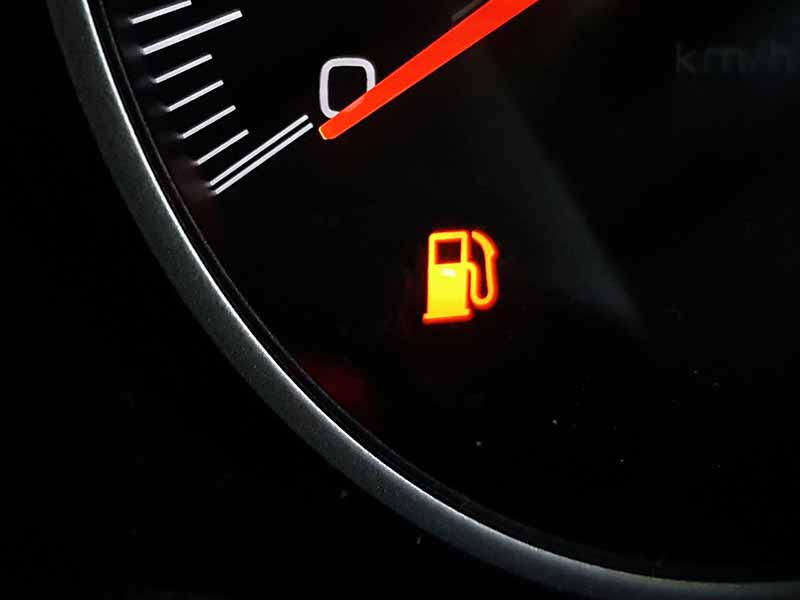
Safety
Maintaining proper tire pressure is not just good for your wallet and the environment but also crucial for your safety on the road.
When your tires are underinflated, they can overheat and wear down faster, which can lead to blowouts or other tire failures. This can be especially dangerous at high speeds or in emergencies, where you need your tires to be in top condition to keep you and your passengers safe.
Overinflated tires can make it harder to control your vehicle, especially in wet or slippery conditions. This can increase your risk of skidding or losing control of your car. By keeping your tires inflated and at the recommended pressure, you can help prevent these issues and ensure that your vehicle is as safe and stable as possible on the road.

Comfort
Maintaining proper tire pressure can also help increase ride comfort for you and your passengers. This is because when your vehicle’s tires are properly inflated, they can better absorb the shock and vibration of the road. Underinflated tires, on the other hand, can cause your vehicle to ride rougher and make it harder to absorb bumps and rough spots in the road. This can result in a less comfortable ride, especially on longer trips.
Overinflated tires, while they may improve fuel efficiency and handling, can also lead to a harsher ride. This is because they don’t provide as much cushioning against the road and can make your vehicle feel more jarring and bumpy.
Keeping your tires at the recommended pressure can help ensure a smoother and more comfortable ride for yourself and your passengers. This can make a big difference, especially if you spend a lot of time in your vehicle.

What Should My Tire Pressure Be?
You can usually find the recommended tire pressure in your vehicle’s owner’s manual or on a sticker inside the driver’s side door jamb.
It’s important to double-check the specifics for your particular make and model. It’s also worth noting that different tires and vehicles may have different recommended tire pressures. Please don’t rely on the pressure printed on the tire itself. This is usually the maximum pressure the tire can handle and not the recommended pressure for your specific car or truck.
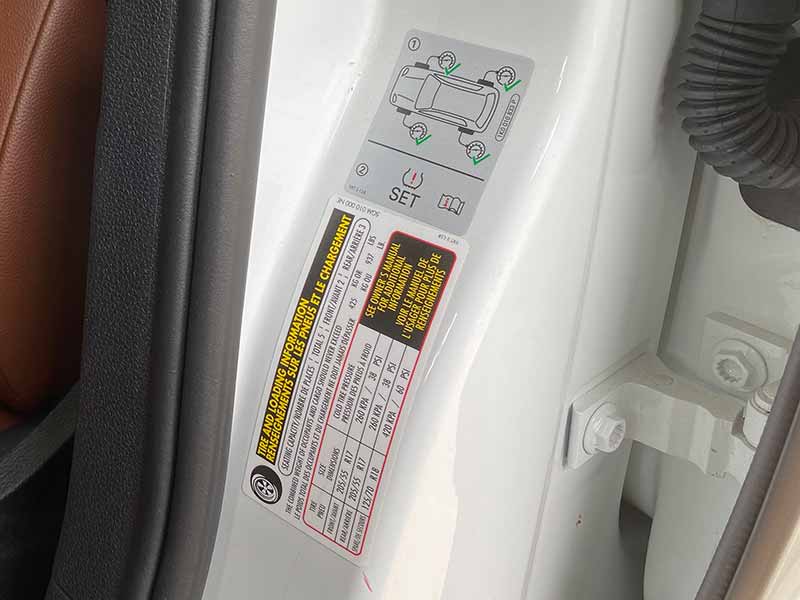
How Often Should You Check Your Tire Pressure?
It’s a good idea to check your tire pressure at least once a month, as well as before going on a long road trip or if you notice any changes in how your car is handling.
It’s important to understand your tire pressure can fluctuate with changes in temperature or altitude. It’s a good idea to check it more frequently if you live in an area with extreme weather conditions or if you often drive up or down mountains.
If you notice that your tire pressure is consistently low, it’s important to get it checked out by a professional, as this could be a sign of a leak or other issue that needs to be addressed.
Make tire pressure checks a regular part of your vehicle maintenance routine. This can help you catch any potential issues before they become major problems and can also help ensure that your car is performing at its best and that you’re getting the most out of your tires.
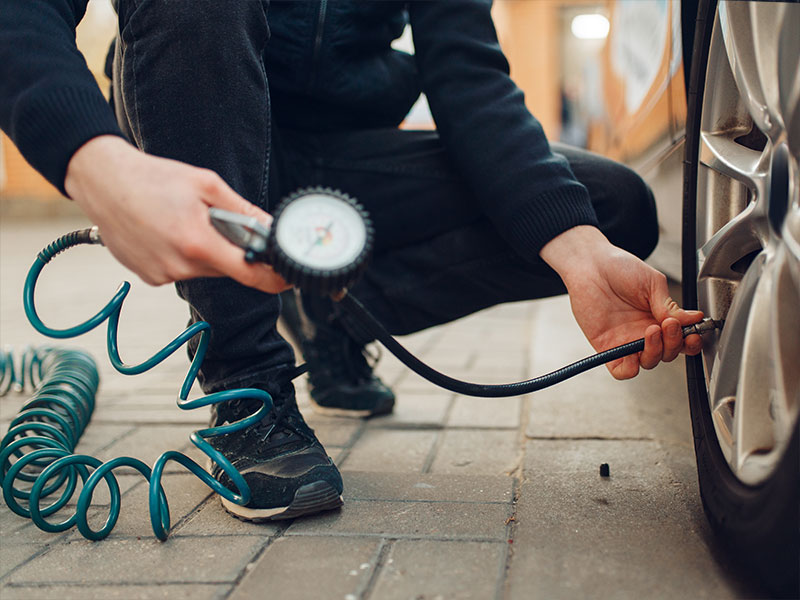
Why Do My Tires Keep Losing Air?
It’s normal for tires to lose air pressure over time for a few reasons.
Air molecules are constantly moving and trying to escape any space they occupy, including your tires. This is known as permeation. Permeation is a natural process that occurs with all tires, regardless of their quality or condition. Over time, the air molecules will slowly leak out of your tires, causing them to lose pressure.
Another reason why tires may lose air over time is due to changes in temperature. When the weather gets colder, the air inside your tires contracts, causing the pressure to drop. When the weather gets hotter, the air inside your tires expands, causing the pressure to rise. That’s why it’s important to check your tire pressure regularly, especially during extreme weather conditions.
Small punctures or leaks can also cause your tires to lose air over time. Even tiny holes or damage to the valve stem can result in slow leaks that can cause your tires to lose pressure over days or weeks.
Resources
Below are some links you may find helpful when learning about tires
- The importance of proper tire inflation – AAA
- Tread rightly: Why tire pressure matters – Car And Driver
Final Thoughts
From improved fuel economy and ride comfort to increased safety and longer tire life, keeping your tires properly inflated has plenty of benefits. The good news is, it’s easy to do! Just make sure you’re checking your tire pressure regularly and inflating your tires to the recommended level for your specific vehicle.
Good luck and happy motoring.
